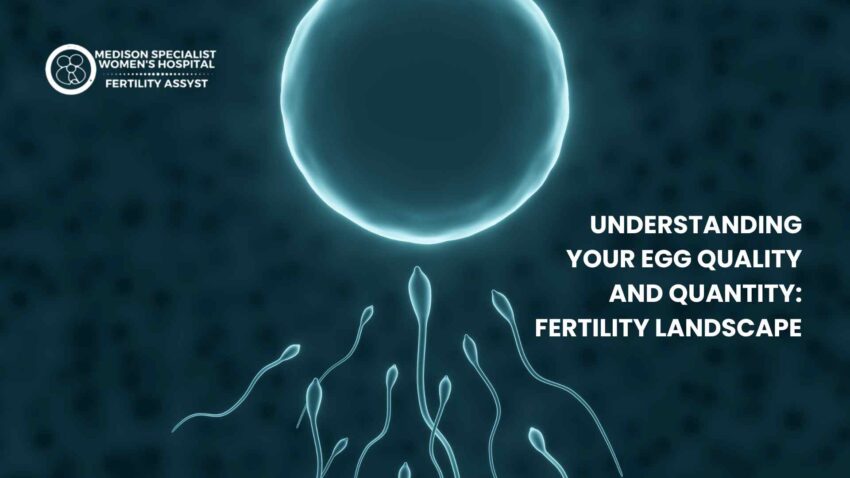For women, understanding their egg health is fundamental to navigating the journey of family planning. Your egg quality and quantity, often referred to as your ovarian reserve, play a crucial role in determining your fertility potential. While age remains the biggest factor, several other aspects influence these key elements. Let’s delve deeper into understanding your egg reserves and the factors that impact them.

Egg Quantity: A Finite Number
We are born with a finite number of eggs – approximately 1-2 million – which steadily decline throughout our lives. By puberty, this number drops to around 300,000-500,000, and through ovulation, women release only 400-500 eggs in their lifetime. While this may seem limited, it’s important to remember that even fewer reach maturity and are chromosomally healthy.
Egg Quality: The Importance of Chromosomes
Egg quality refers to the health and viability of your eggs. A healthy egg possesses the correct number and structure of chromosomes (23), essential for successful fertilization and embryo development. As women age, the chance of chromosomal abnormalities in eggs increases significantly. According to the American Society for Reproductive Medicine, at age 25, approximately 75% of eggs are chromosomally normal, dropping to 50% by age 35 and plummeting to 10-15% by age 40.
Beyond Age: Additional Factors Affecting Egg Health
While age is the primary determinant, several other factors can influence your egg quality and quantity:
- Medical conditions: Certain medical conditions like endometriosis, PCOS, and autoimmune disorders can impact ovarian function and egg health.
- Lifestyle choices: Smoking, excessive alcohol consumption, and obesity can decrease egg quality and quantity.
- Genetics: Some genetic factors play a role in ovarian reserve and egg health.
- Environmental toxins: Exposure to certain toxins like pesticides and industrialchemicals can potentially harm egg health. Assessing Your Egg Reserve: Understanding the Options
While no single test directly measures egg quality, various tests can provide valuable insights into your ovarian reserve:
- Anti-Müllerian hormone (AMH): This blood test indicates the number of remaining follicles in the ovaries, offering a good estimate of egg quantity.
- Antral follicle count (AFC): This ultrasound test counts the number of follicles in the ovaries, also providing information about egg quantity.
- Basal follicle-stimulating hormone (FSH): This blood test measures FSH levels, elevated levels potentially indicating a diminished ovarian reserve.
- Estradiol: This blood test measures estradiol levels, which can provide additional information about ovarian function.
Taking Control of Your Fertility Journey
Understanding your egg health empowers you to make informed decisions about your fertility. If you’re concerned about your ovarian reserve or have difficulty conceiving, consult a fertility specialist. Discussing your individual circumstances and risk factors can help you and your doctor develop a personalized plan, whether it involves lifestyle modifications, fertility treatments, or exploring alternative family-building options.
Remember, fertility is a complex landscape, and your egg health is just one piece of the puzzle. Consult with healthcare professionals, prioritize your well-being, and make informed choices to navigate your fertility journey with confidence.
References:
- American Society for Reproductive Medicine: https://www.asrm.org/
- Mayo Clinic: https://en.wikipedia.org/wiki/Ovarian_reserve
- National Institute of Child Health and Human Development: https://www.ncbi.nlm.nih.gov/books/NBK532300/
Additional Tips:
- This article focuses on female fertility, but male infertility also plays a significant role in conception. Encourage open communication with your partner about fertility concerns.
- Consider utilizing credible fertility resources and support groups to connect with others on similar journeys.
- Remember, age is just one factor affecting fertility. Many women in their late 30s and early 40s successfully conceive naturally or with assisted reproductive technologies.
